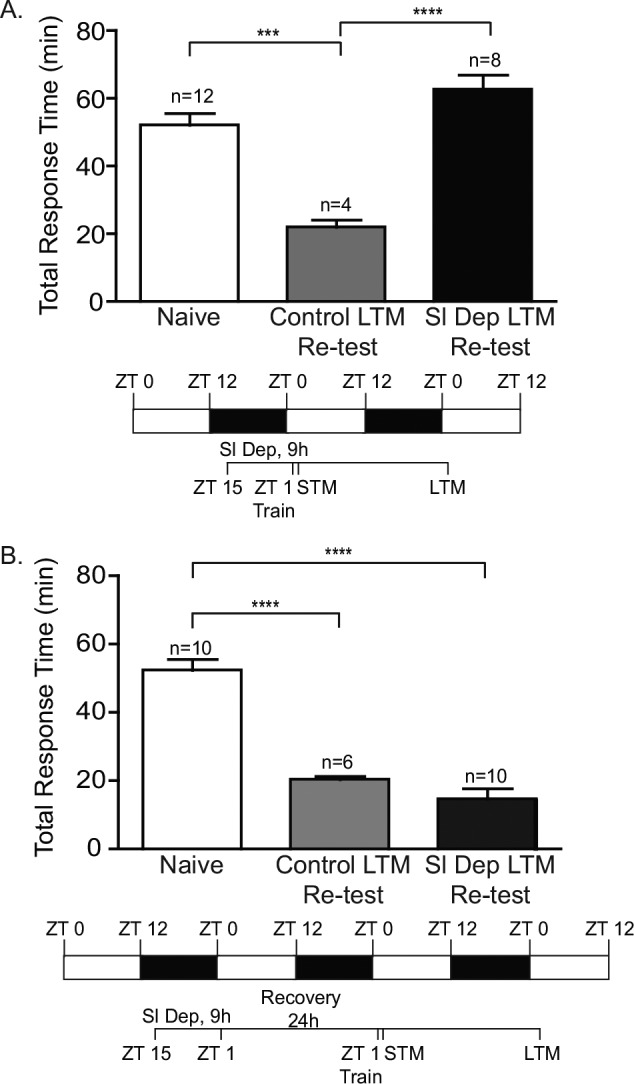Figure 7.

Overtraining does not rescue long-term memory (LTM) immediately after sleep deprivation, but attenuates the persistent effects of sleep deprivation on LTM 24 h after sleep deprivation. (A) To determine whether additional training mitigated the effects of sleep deprivation, animals were retested 24 h for LTM after the initial short-term memory (STM) test. As the testing session is procedurally identical to training, the STM test acted as a second training session. Control animals demonstrated robust LTM following the two training sessions (Control LTM retest). Sleep deprived animals that failed to exhibit STM (Figure 4) were retested for LTM 24 h later (Sl Dep LTM retest). Two training sessions did not induce LTM in sleep deprived animals (one-way analysis of variance F(2,21) = 17.54, P < 0.0001). Numbers of animals in each group are shown above the columns. Asterisks represent Bonferroni post hoc analyses. ***P < 0.001 for testing between naïve and control trained animals and ****P < 0.0001 for testing between control trained and sleep deprived animals. (B) To determine if additional training was sufficient to overcome the persistent effects of sleep deprivation, sleep deprived animals that did not show STM when trained 24 h after sleep deprivation (Figure 5) were retested for LTM 24 h later (Sl Dep LTM retest). STM testing acted as a second training session. Upon testing 24 h later, sleep deprived animals demonstrated significantly decreased response times when compared to naïve animals, indicating that these animals formed LTM after two training sessions (one-way analysis of variance F(2,23) = 37.39, P < 0.0001). Non-sleep deprived animals also demonstrated robust LTM following the two training sessions (Control LTM retest). Asterisks represent Bonferroni post hoc analyses ****P < 0.0001.
